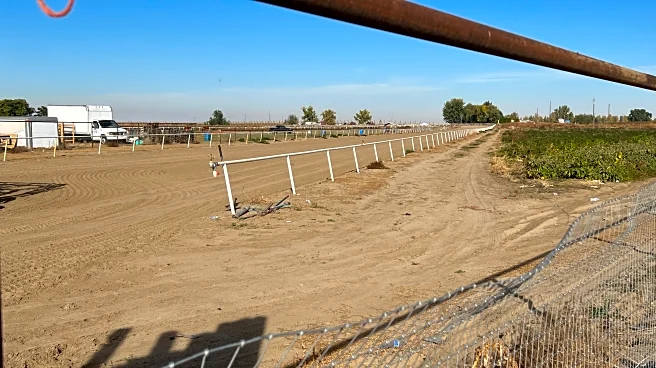What is the story about?
What's Happening?
The Minnesota Department of Agriculture (MDA) has announced the allocation of over $560,000 in grants aimed at supporting workforce development and hands-on training in the meat processing sector. This funding is distributed through two state programs: the Meat Processing Train and Retain Grant program and the Agricultural Growth, Research, and Innovation (AGRI) Meat Education and Training (MEAT) Grant program. The Train and Retain Grant program has awarded $341,690 to three organizations to bolster small to medium-sized meat and poultry processors, focusing on hiring and employee retention through tuition reimbursement, bonuses, and childcare stipends. Additionally, the AGRI MEAT grant program has provided $222,360 to schools for establishing or expanding meat cutting and butchery training programs, supporting equipment purchases, facility renovations, curriculum development, and faculty training.
Why It's Important?
These grants are crucial for addressing the growing demand for skilled workers in the meat processing industry, which is vital for maintaining a robust supply chain and supporting local economies. By investing in workforce development, Minnesota aims to create meaningful career opportunities and ensure the sustainability of its meat processing sector. This initiative not only supports existing businesses but also encourages new entrants into the industry, potentially leading to increased innovation and efficiency. The focus on education and training also helps in adapting to evolving industry standards and consumer preferences, ensuring that the workforce is equipped with the necessary skills to meet future challenges.
What's Next?
The grant recipients, including organizations and schools, will begin implementing their programs, focusing on hiring, training, and retaining skilled workers. The MDA's continued support through equipment upgrade grants to 42 Minnesota meat businesses indicates ongoing efforts to enhance the sector's capabilities. As these programs progress, they may serve as models for other states looking to strengthen their meat processing industries. Stakeholders, including local businesses and educational institutions, are likely to monitor the outcomes closely, potentially advocating for similar initiatives in other regions.
















